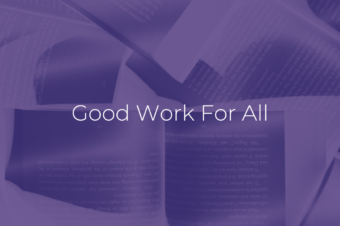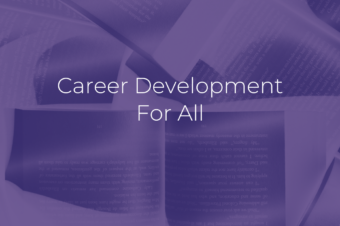As you may know, 10Eighty are sponsoring HR Grapevine Live this year, the theme is The People Revolution, Empowering People to Drive Change and Purpose. This theme is perfect for us and this is the first in a series of articles on how high-performing businesses are creating employee experiences that put the individual at centre stage.
Creating a great employee experience
The employee experience encompasses all that your employees experience during the course of their employment journey with the organisation – from application process to the day they leave. A good candidate experience drives referrals and enhances the employer brand even when a candidate is not hired and affords the kind of loyalty that cannot be achieved via other routes.
In a fiercely competitive environment, it pays to take a good look at the employment experience and organisation offers. Even candidates who are unsuccessful, if they have a good experience when interviewing, say they would tell others to apply, and they will also be more likely to buy a company’s products or services. Applicants and employees are going to share their experience of interacting with you, whether positive or negative, and it can make a big difference when it comes to recruiting.
Our favourite podcaster, Jacob Morgan, author and futurist says that what you should aim to achieve in creating a positive employee experience is “that people are going to want to show up to work. They’ll genuinely feel excited and engaged about it”. When experience is aligned with brand, the organisation exploits a powerful tool for retaining high potential talent, leveraging employee engagement and enabling the creation of a talent pipeline.
Employee-centred policies
Think in terms of policies and procedures that put the employee centre stage, we need to build purpose into the employee experience as crucial in order to leverage the talent and potential of their workforce. A 2015 survey by Glassdoor found that companies with a great employee experience outperformed the S&P by 122%.
Michael Steger, Associate Professor of Psychology at Colorado State University believes there are three elements that make a difference for employees:
- Does the work have significance and purpose?
- Does it contribute to finding a broader meaning in life?
- Does it make a positive contribution to the greater good?
For younger workers this may be particularly important; Gen X and Gen Y believe that being able to apply their personal values in their career is meaningful, to the point that 55% will change career paths to integrate their work and personal life.
Personalised career paths
Career path design is at the heart of the employee experience; a focus on personalised work roles aligned with individual career preferences and organisational will maximize performance in competitive market conditions.
We know that engagement initiatives often fail, and the increased use of new forms of employment contracts and the gig economy don’t make such efforts any easier to facilitate. Engagement can be a slippery concept and HR initiatives aimed at boosting engagement don’t always have the desired effect. Enriching the employee experience requires a measure of planning, preparation and monitoring to be successful for employees who want and deserve careers that align with their values, talents and passions.
Book your tickets here








